Additional funding will promote innovation, resilience and diversity within the oyster aquaculture industry
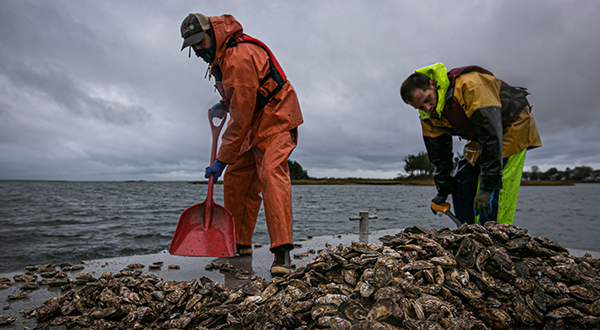
The Nature Conservancy (TNC) and The Pew Charitable Trusts (Pew) have announced the second phase of their Supporting Oyster Aquaculture and Restoration (SOAR) program, which is restoring coastal ecosystems and fostering a thriving oyster aquaculture industry in the U.S. Over the next four years, an additional $6.3 million in funding will sustain efforts to rebuild oyster reefs, as well as promote innovation, resilience and diversity within the oyster aquaculture industry.
A portion of the funds will support the SOAR Purchase Program, which buys oysters from growers and deploys them in oyster reef restoration projects throughout the country. The remaining funding will be allocated to the SOAR Shellfish Growers Resiliency Fund, which invests in projects that advance collaborative marine conservation efforts, increase economic opportunities for shellfish farming in the United States, and improve representation and equity in oyster aquaculture and conservation. Robust monitoring will measure the benefits of these efforts to the environment, eroding shorelines, and working waterfronts.
Together, the initiatives aim to mitigate the immediate effects of climate change and build resilience for the future, as well as strengthen relationships throughout the aquaculture industry.
“Oysters – whether farmed or wild – are environmental powerhouses, improving water quality, providing wildlife habitat, and protecting against erosion,” said Boze Hancock, TNC’s senior marine restoration scientist. “This sets shellfish growers up to be one of our strongest allies in the recovery and protection of oyster reefs.”
In its next phase, the Purchase Program will repurpose up to 2.5 million additional farmed oysters to rebuild 30 acres of reefs spanning 12 restoration sites in Maine, New Hampshire, Massachusetts, New York, New Jersey, Maryland, California and Washington state, supporting 100 farms and 300 jobs.
“After seeing the extraordinary benefits of leveraging farmed oysters in restoration sites, it became clear to us that this model of collaboration between the aquaculture sector and ecosystem restoration has the potential to be scaled in the U.S. and around the world,” said Robert Jones, TNC’s global lead for aquaculture. “As we expand the scope of the project, we’re eager to realize the potential of partnering with farmers on conservation and consider where and how we might apply the model next.”
This next phase of Shellfish Growers Resiliency Fund’s work will build on the success of the initial grants and offer even more opportunities to farmers and aligned organizations. With support from Builders Initiative, the fund will create an additional 50 industry-led projects, with a focus on diversity, equity, inclusion and justice. In the selection process, priority will be given to proposals for aquaculture and restoration projects that benefit underserved and underrepresented communities.
“Farmers are responsible for feeding the planet, and with that comes a call to action and innovation,” said Peter Bryant, oceans program director for Builders Initiative. “We also know that underrepresented communities are usually at the forefront of such courageous leadership in the oceans and food systems. By prioritizing justice and inclusion, SOAR 2.0 allows their ideas to be truly activated and achieved.”
Follow the Advocate on Twitter @GSA_Advocate
Now that you've reached the end of the article ...
… please consider supporting GSA’s mission to advance responsible seafood practices through education, advocacy and third-party assurances. The Advocate aims to document the evolution of responsible seafood practices and share the expansive knowledge of our vast network of contributors.
By becoming a Global Seafood Alliance member, you’re ensuring that all of the pre-competitive work we do through member benefits, resources and events can continue. Individual membership costs just $50 a year.
Not a GSA member? Join us.
Author
-
Responsible Seafood Advocate
[103,114,111,46,100,111,111,102,97,101,115,108,97,98,111,108,103,64,114,111,116,105,100,101]
Related Posts
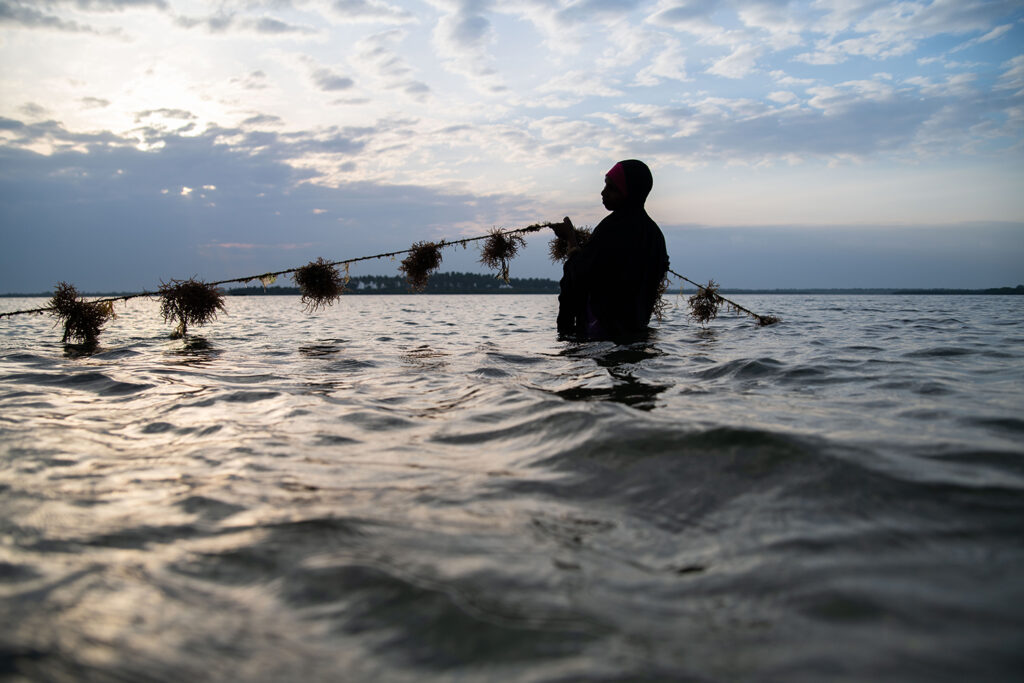
Responsibility
Study: Aquaculture can be ‘part of the solution’ to marine ecosystem restoration
A new study has identified 12 potential ecological benefits of aquaculture, which can help marine ecosystem restoration.
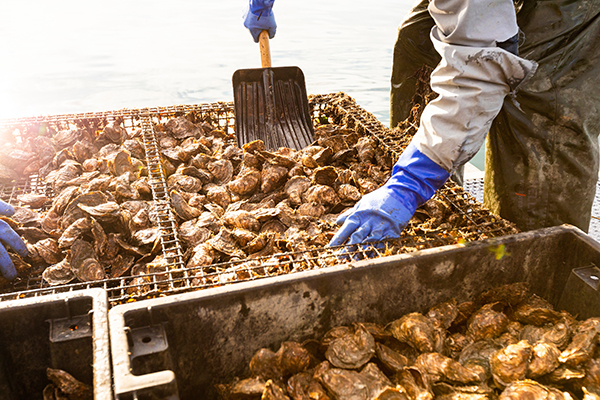
Responsibility
The Nature Conservancy defines restorative aquaculture in new study
The Nature Conservancy's latest study sets out a standard definition of and global principles for restorative aquaculture.
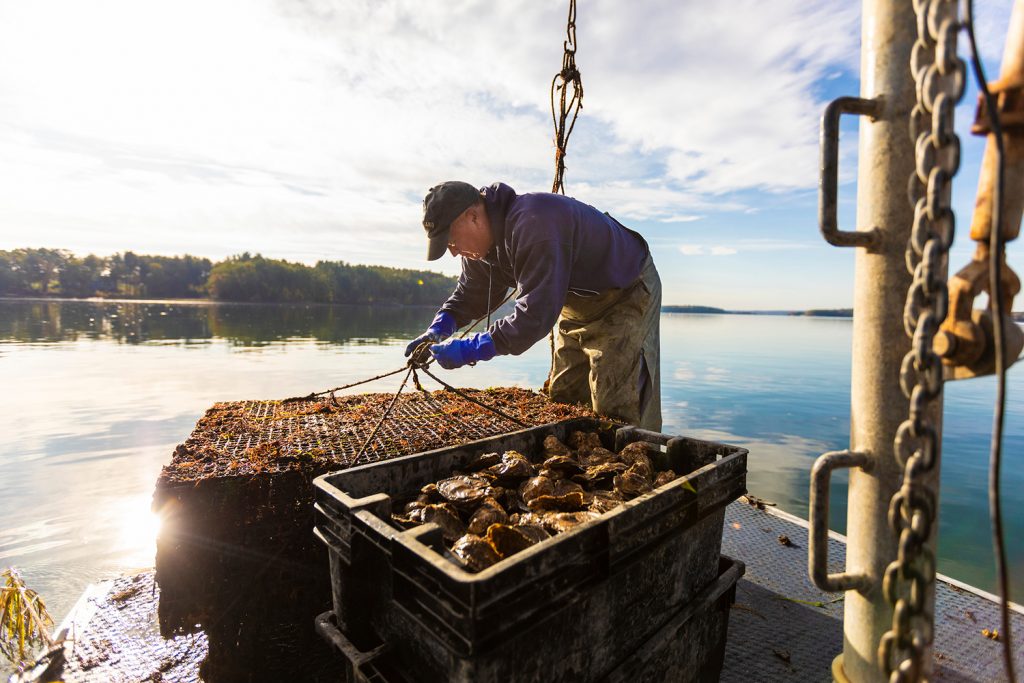
Responsibility
TNC: Restorative aquaculture can improve marine habitats, biodiversity
A report from The Nature Conservancy shows restorative or regenerative aquaculture can benefit ecosystems, marine animal habitats and biodiversity.
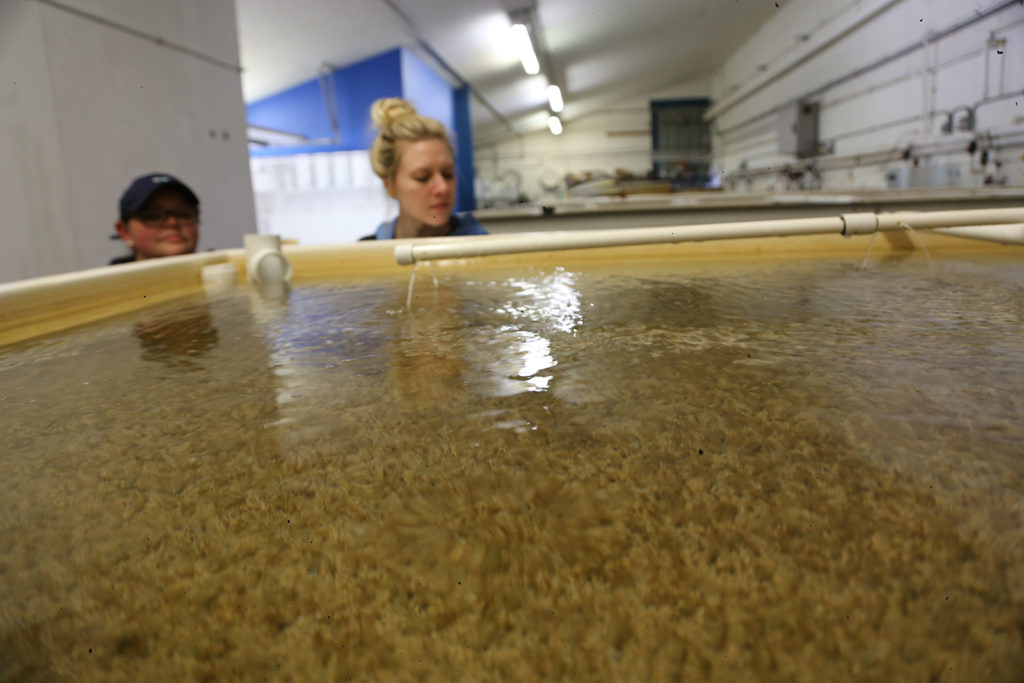
Intelligence
Uncertain times for oyster larvae production in North America
Oyster larvae producers say information sharing and perseverance are seeing them through a prolonged stretch of high larval-stage mortalities.



